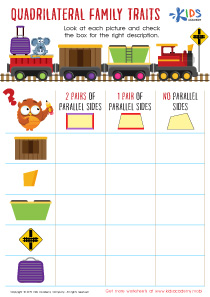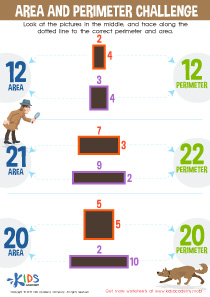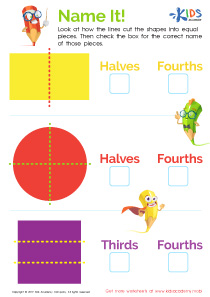Shape Recognition Tracing Shapes Worksheets for Ages 5-6
13 filtered results
-
From - To
Discover a fun and effective way to boost shape recognition skills with our "Shape Recognition Tracing Shapes Worksheets" designed specifically for ages 5-6! These engaging worksheets feature a variety of shapes, allowing young learners to trace and familiarize themselves with circles, squares, triangles, and more. By incorporating hands-on tracing activities, children will enhance their fine motor skills while learning to identify and differentiate shapes. Ideal for classroom use or at-home practice, these worksheets create an interactive learning experience that builds foundational math skills. Join us in making shape recognition both educational and enjoyable for your little ones! Download and start tracing today!
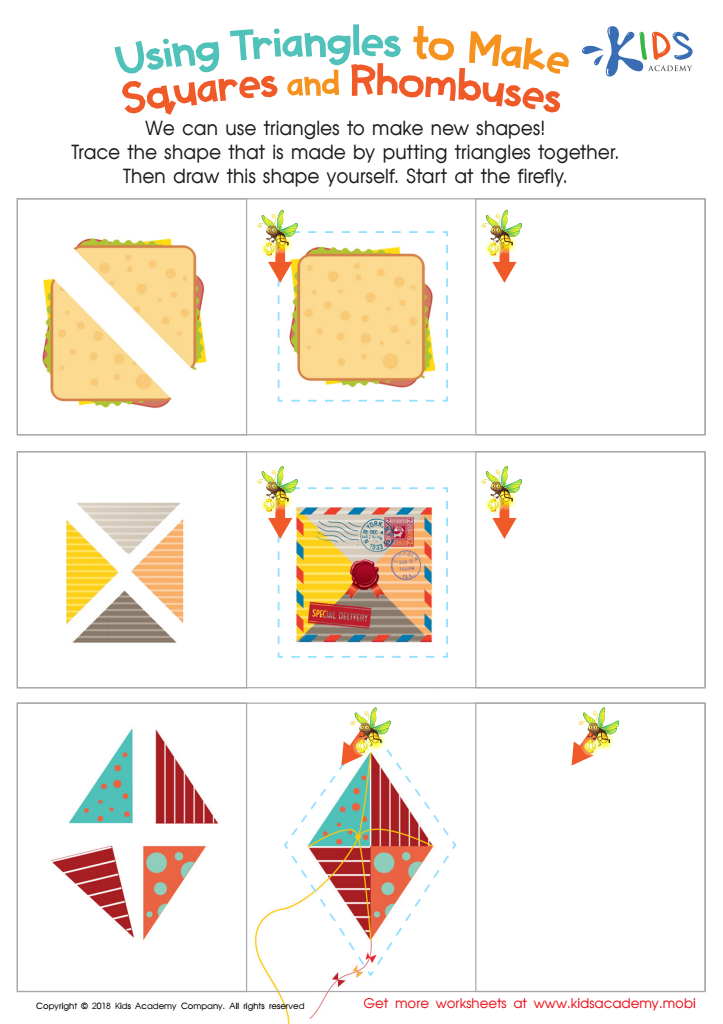

Using Triangles to Make Squares and Rhombuses Worksheet
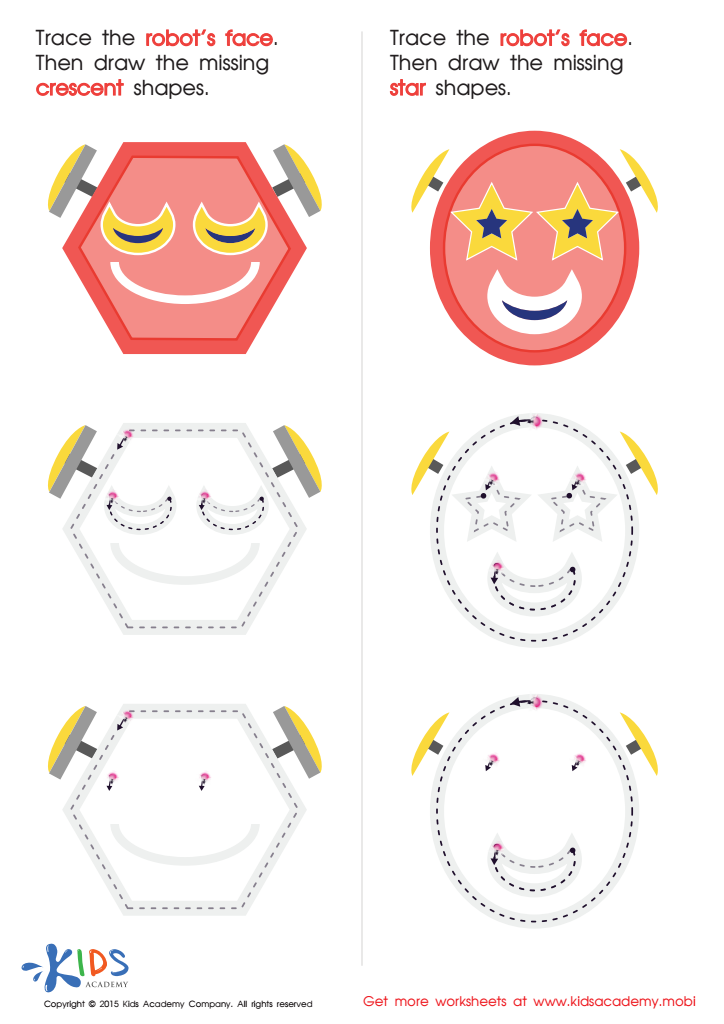

Composing a Robot's Face of Crescents And Stars Worksheet
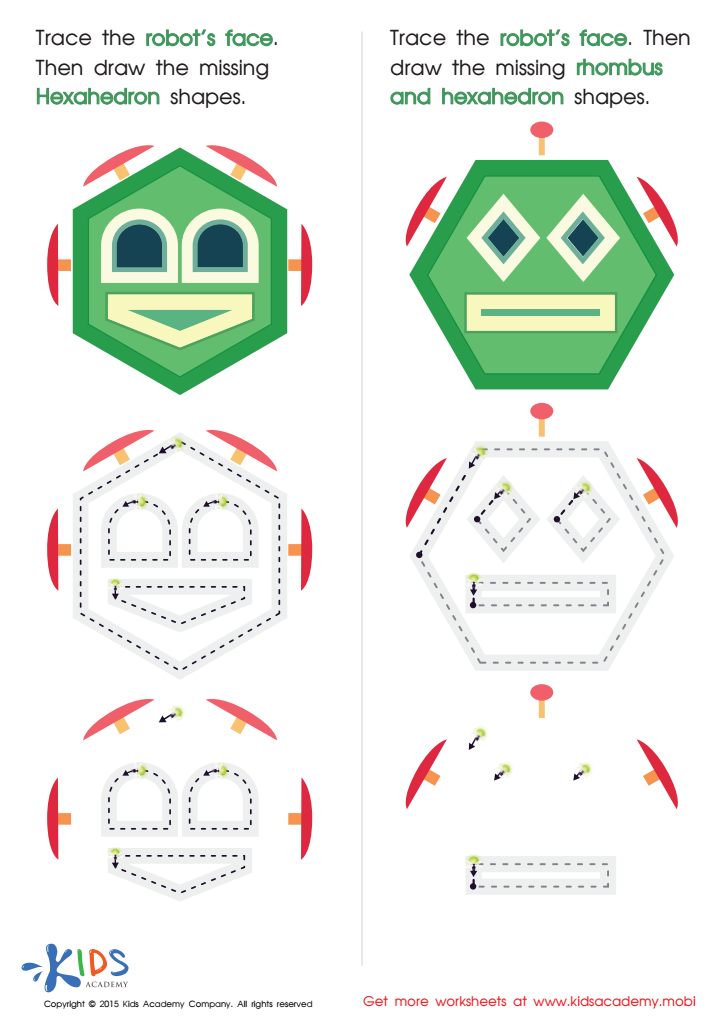

Practice Drawing Hexahedrons And a Rhombus Worksheet
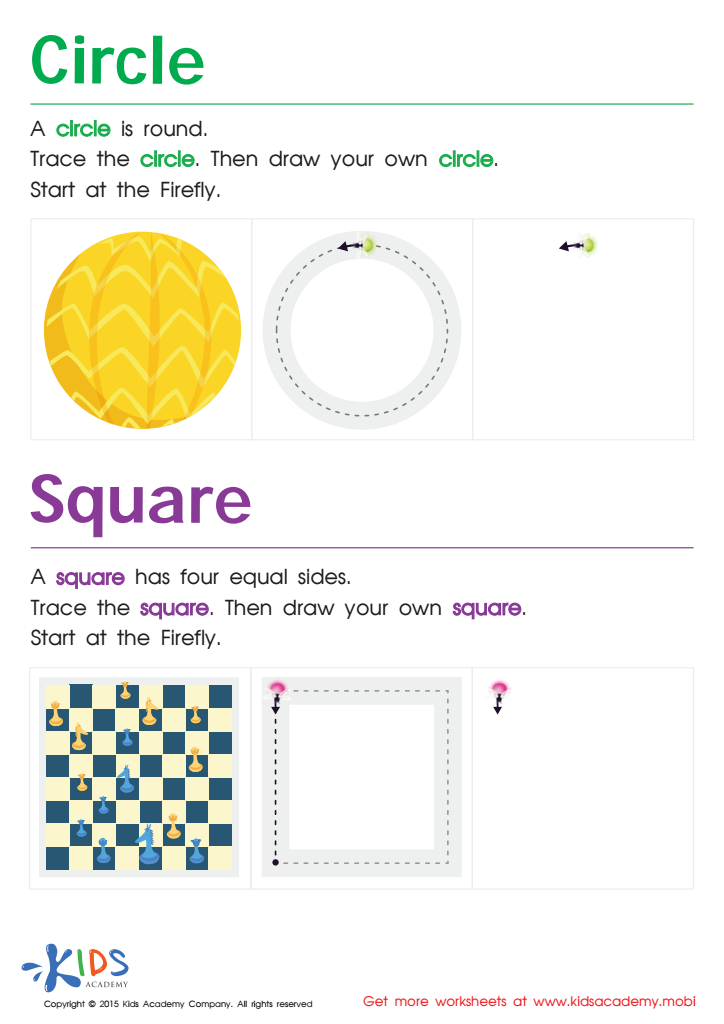

Trace And Draw a Circle And a Square Worksheet
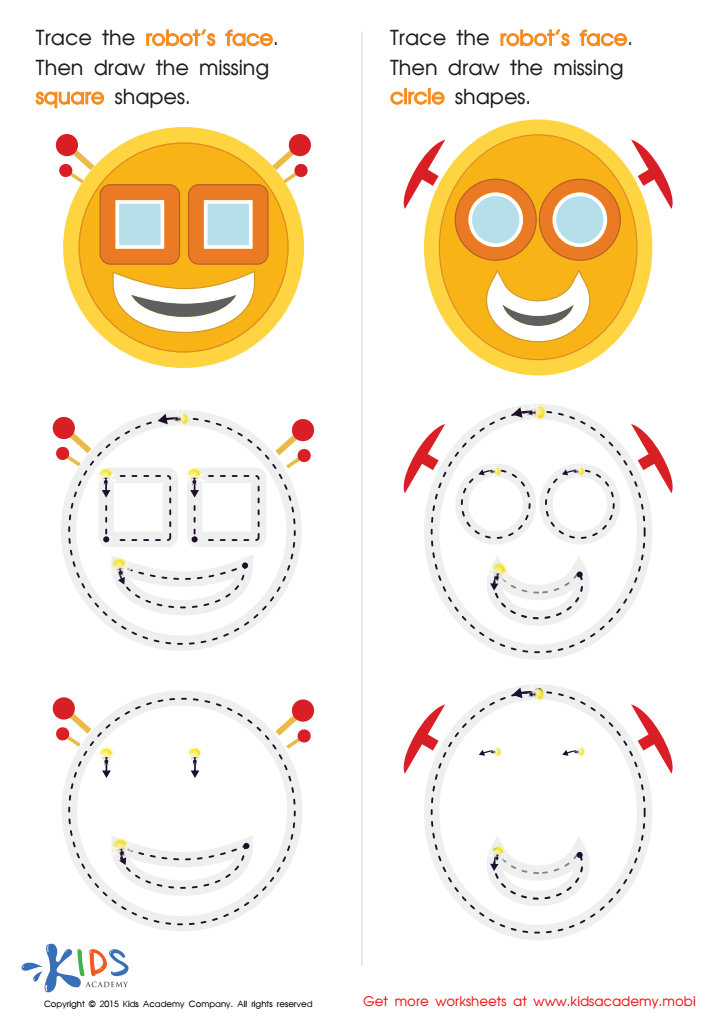

Practicing to Draw Circles And Squares Printable
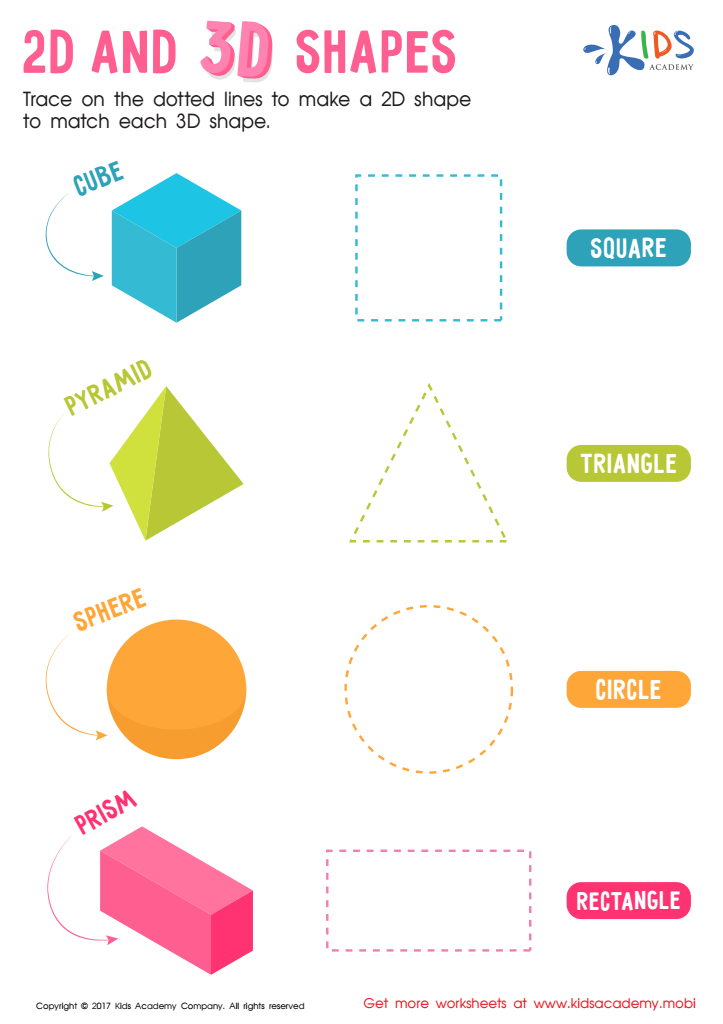

2D and 3D Shapes Worksheet
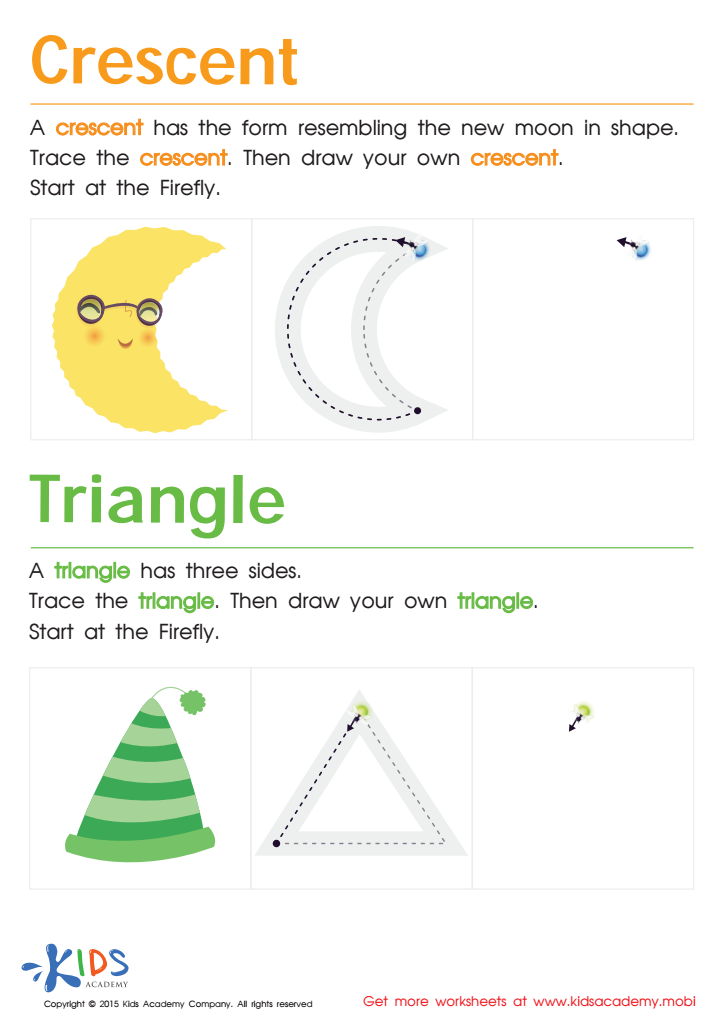

Learning to Draw Crescents And Triangles Worksheet
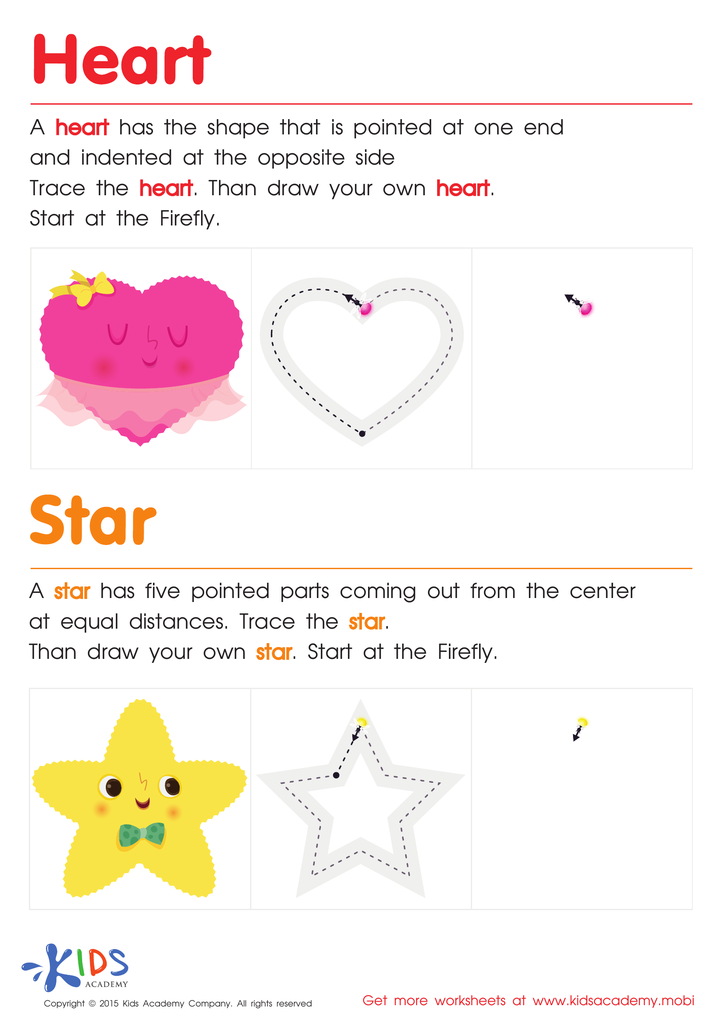

Let's Learn to Draw Hearts And Stars Printable
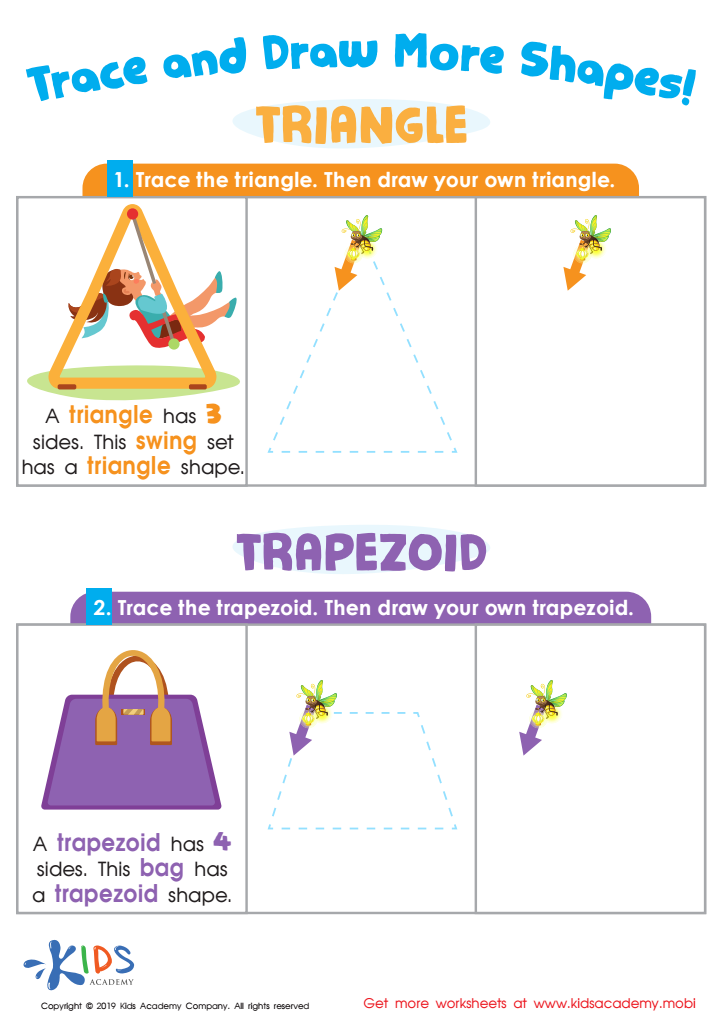

Trace and Draw More Shapes Worksheet
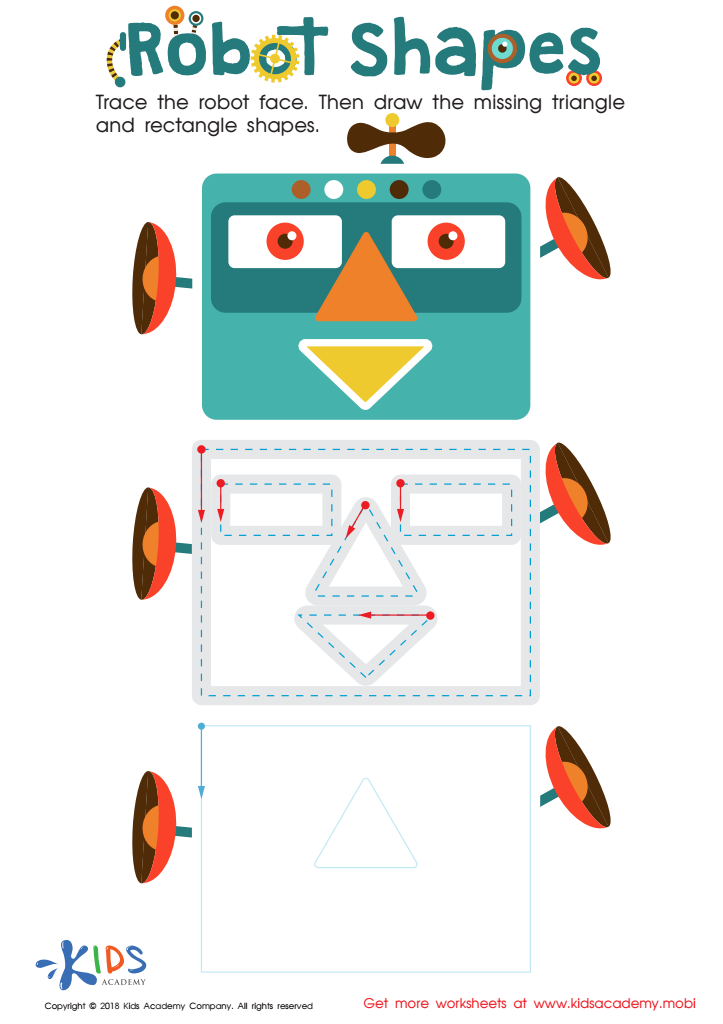

Robot Shapes Worksheet
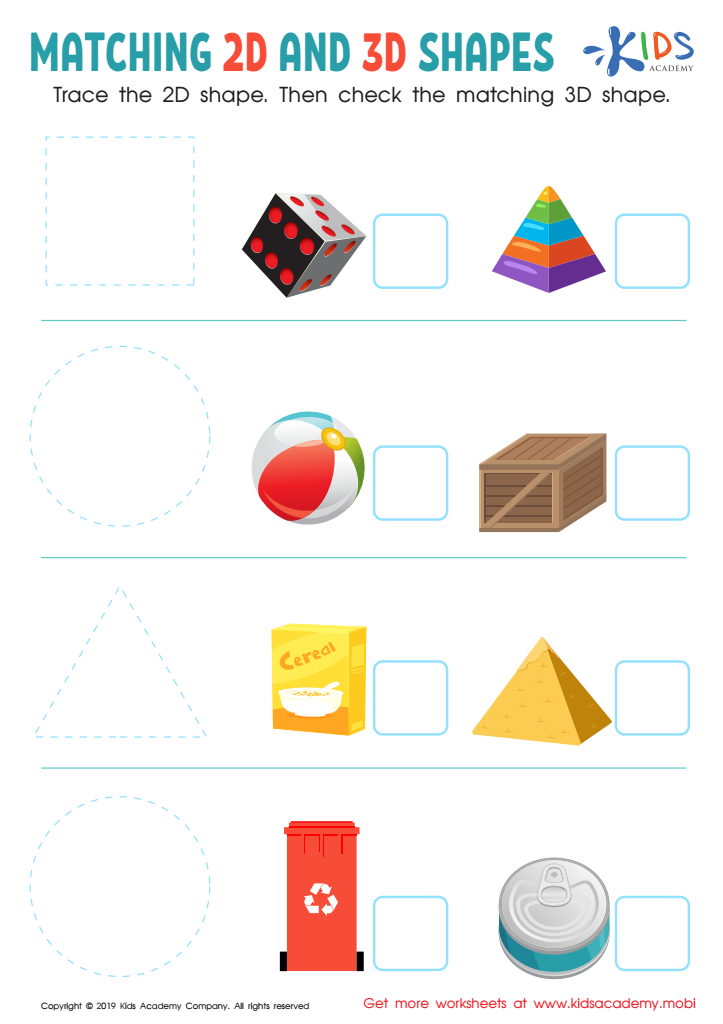

Matching 2D and 3D Shapes Worksheet
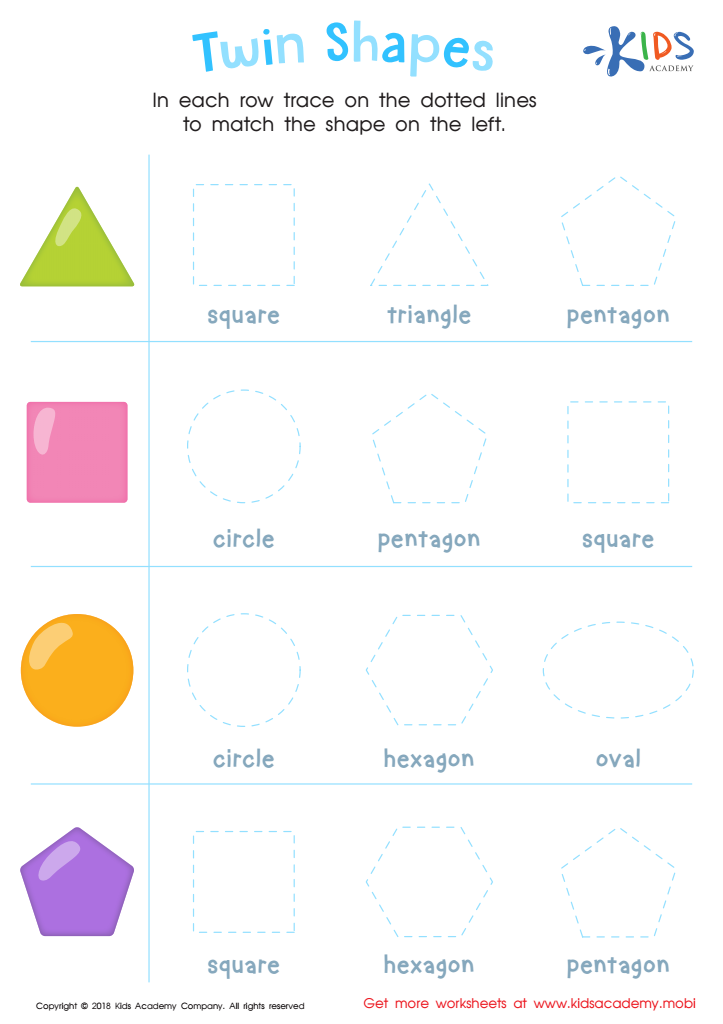

Twin Shapes Dot-to-Dot Worksheet
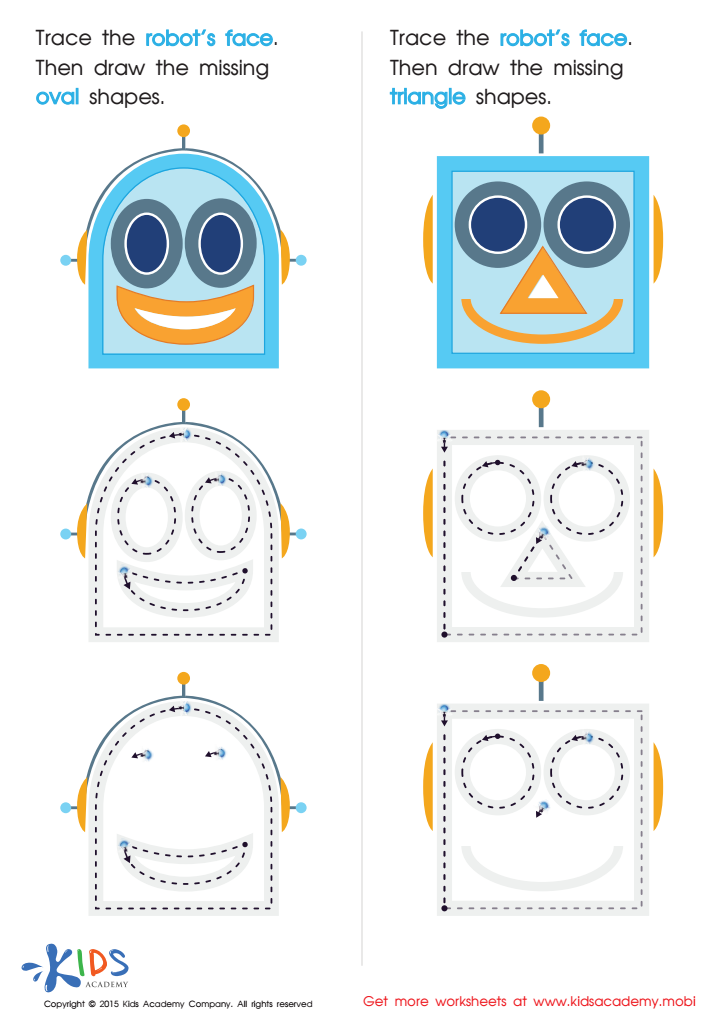

Drawing Ovals And Triangles with Fun Printable
Shape recognition and tracing shapes are fundamental skills for children aged 5-6, laying the groundwork for numerous cognitive and motor development milestones. Parents and teachers should care about these activities for several compelling reasons.
Firstly, shape recognition enhances spatial awareness, helping children to identify, differentiate, and manipulate objects in their environment. This foundational skill is crucial not just in early math learning, where shapes are first introduced, but it also supports problem-solving abilities as they navigate physical spaces and engage with puzzles or building blocks.
Secondly, tracing shapes integrates fine motor skills and hand-eye coordination. As children grasp and control writing tools, they develop dexterity that is essential for writing and other self-help skills, fostering independence as they learn to express themselves through art and writing.
Furthermore, understanding shapes assists in geometric comprehension, which forms the basis for more complex mathematical concepts later on. This early exposure can inspire a positive attitude toward math and science as they progress in their education.
Ultimately, engaging in shape recognition and tracing helps children build confidence, enhances their cognitive development, and lays the foundation for academic success across subjects. Thus, investing in such activities is essential for holistic early childhood education.
 Assign to My Students
Assign to My Students














